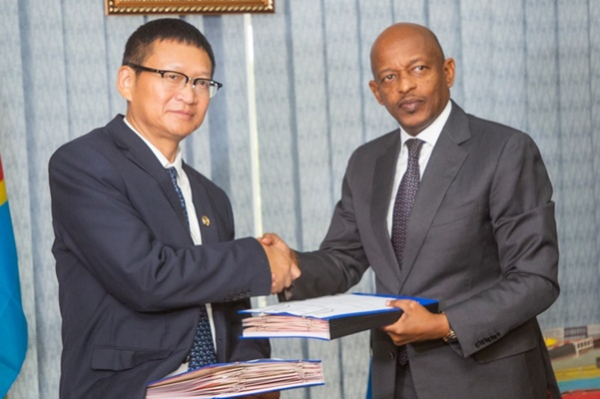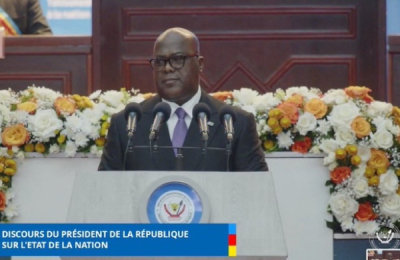The Democratic Republic of Congo (DRC) plans to build a freeway linking Banana, which should have a deepwater port next year, to Kinshasa, the political capital. On May 20, the Minister of Infrastructure and Public Works, Alexis Gisaro, and the Chinese company Zhongshi Wosen Technology Co. Ltd. signed a memorandum of understanding (MoU) to advance the project.
According to the Ministry, the MoU entrusts the Chinese company, about which little information is available, with conducting feasibility studies. After this phase, the freeway will be finalized.
However, the Ministry has already confirmed that the infrastructure will span 450 kilometers and pass through Matadi. The port of Matadi, situated on the Congo River, currently serves as the main gateway for goods destined for Kinshasa. It also provides indirect access to the Atlantic Ocean via a river canal, although this limits the size of vessels able to dock there.
The road project is strategic for enhancing the competitiveness of both Matadi’s and Banana’s ports, with the latter scheduled for completion in 2026. The freeway will facilitate the transport of goods between the coast and the country’s interior. Ultimately, it could be integrated into regional networks linking the DRC with other countries in Central and Southern Africa.
The Banana-Matadi-Kinshasa axis is part of the Banana-Kolwezi corridor, which stretches approximately 2,670 kilometers. This corridor was showcased at the 9th edition of Expobéton—a trade show focused on the development of cities, corridors, and special economic zones—as a fully Congolese route that could serve as an alternative to the Lobito corridor, which leads to the Angolan coast.
No precise timetable or budget details have yet been disclosed for the freeway’s construction. Nonetheless, potential challenges are anticipated, including financing mobilization, execution conditions, and investment security, especially since the route crosses areas facing security constraints. These uncertainties previously stalled a railroad project planned to serve the port, which has yet to materialize.
Furthermore, the success of the freeway project may depend on its complementarity with other key investments, particularly in the port, customs, and energy sectors, to ensure a smooth and competitive logistics chain.
This article was initially published in French by Henoc Dossa and Ronsard Luabeya (intern)
Edited in English by Ola Schad Akinocho










